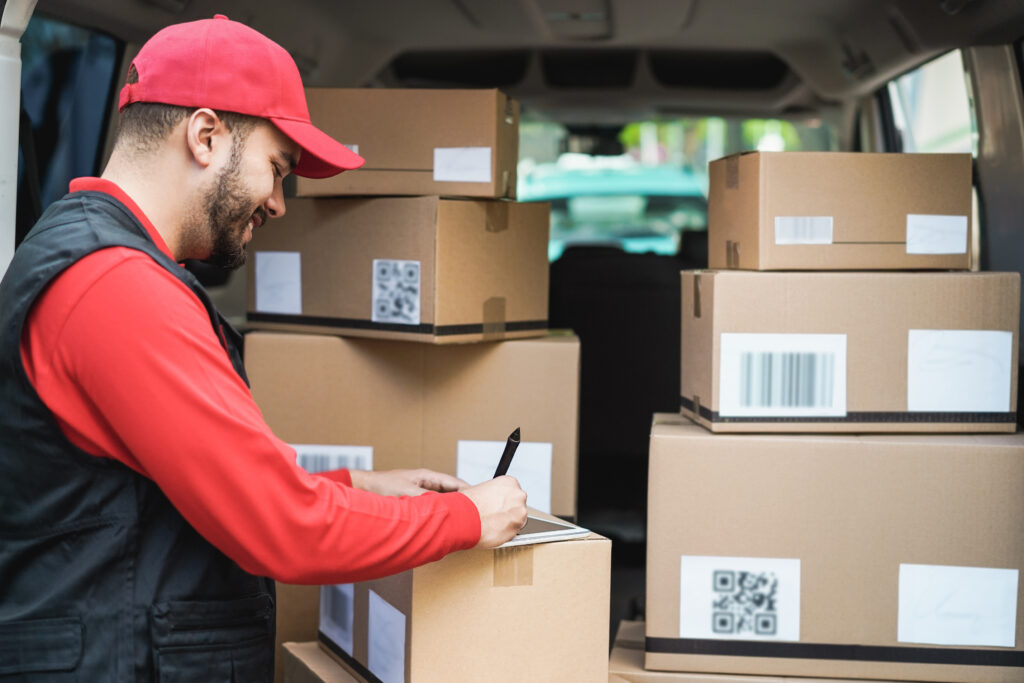Last mile delivery, the final stage of the logistics process from a distribution centre to the end customer, presents significant challenges for retailers. This crucial phase plays a pivotal role in shaping customer satisfaction, operational costs and overall business profitability.
But last mile delivery is often one of the roadblocks for brands wanting to expand their DTC presences into new markets. Last mile delivery logistics present challenges like:
Complexity and Inefficiencies
The entire last mile delivery process can be inefficient for retailers. It can involve manual routing, poor logistics visibility and issues with order selection. This complexity makes it difficult for retailers to ensure timely and accurate customer fulfilment.
Cost and Volume Fluctuations
Last mile delivery is less efficient and more expensive than other stages of the delivery process due to the requirement for individual drop-offs, increased mileage and the fluctuation in delivery volume according to seasons. Retailers struggle to find providers who can navigate these challenges while maintaining cost-effectiveness.
Increased Demand for Fast and Efficient Deliveries
The rising demand for efficient and fast deliveries places significant pressure on last mile companies. Retailers need providers who can meet the increasing expectations for quick deliveries while ensuring consistency and reliability.
Poor Address Quality
A study found that 73% of consumers experience delivery failures. These failures can result from poor address quality and affect delivery profitability. For global brands and retailers, localising the address fields makes a significant and positive difference. Address formats vary from country to country. Localising the address fields in the checkout puts the shopper at ease and makes the address label easy to read for delivery personnel which reduces delivery failures. Retailers need localised checkouts and reliable providers who can effectively address and mitigate these issues.
Visibility and Choice
While many new logistics providers have entered the last mile market, retailers are faced with the challenge of selecting the right provider. Every logistics partner in every market must be vetted. On top of that, brands should choose providers that provide visibility (to the customer and retailer) into the delivery process. and provides competitive opportunities to outsource.
The Financial Impact of Getting Last Mile Delivery Wrong
Failing to secure a reliable last mile delivery provider can be financially detrimental across the ledger. From increased operational costs to the losses associated with failed deliveries to – worst of all – a poor customer experience, the importance of getting last-mile right cannot be overstated.
High Shipping Costs and Operational Expenses
One of the foremost financial impacts of last mile logistics on retailers is the high shipping costs associated with individual, customer-specific deliveries. As ecommerce continues to surge, the demand for efficient last mile delivery services has intensified. This has led to increased operational expenses for retailers. The need to meet customer expectations for fast and reliable shipping further increases these costs, posing a significant financial challenge for retailers.
Inefficiencies and Failed Deliveries
Inefficiencies within the last mile delivery process, such as failed deliveries, return pickups and suboptimal route planning, contribute to higher overall distribution costs for retailers. Failed deliveries result in additional expenses. But they also have a detrimental effect on customer satisfaction and retention. The financial repercussions of these inefficiencies underscore the critical need for streamlined and cost-effective last mile solutions.
Customer Experience and Revenue Implications
The impact of last mile logistics on customer experience is a critical factor for retailers. A successful last mile strategy can significantly enhance customer satisfaction, leading to positive brand perception and increased customer retention. Conversely, poor last mile performance can lead to dissatisfied customers, potential revenue loss, and long-term damage to the brand’s reputation and financial standing.
Operational Efficiency and Profitability
Retailers are under pressure to optimise their last mile operations to reduce shipping costs, streamline resources and enhance operational efficiency while maintaining overall profitability. Addressing the challenges posed by last mile logistics is essential for retailers to ensure cost-effective and customer-centric solutions, ultimately impacting their bottom line and financial performance.
A Better Solution for Last Mile Delivery

Outsourcing last mile logistics in global markets can offer several advantages for brands and retailers. This is especially true for brands that want to accelerate speed-to-market.
Access to specialised expertise and infrastructure
Partnering with an expert in international markets can give retailers access to specialised expertise, local market knowledge and established infrastructure for efficient last mile delivery. This can be particularly valuable in regions where retailers may lack the necessary resources or familiarity with local delivery networks.
Cost-effectiveness and scalability
Outsourcing last mile delivery allows retailers to potentially reduce operational costs associated with establishing and maintaining their own delivery networks in foreign markets. Additionally, providers may offer scalable solutions that align with fluctuating demand. This enables retailers to adapt to market dynamics without significant capital investment.
Flexibility and focus on core competencies
By outsourcing, retailers can focus on their core competencies and strategic initiatives while entrusting the complexities of last mile delivery to experienced partners. This allows retailers to allocate resources efficiently and concentrate on enhancing their overall customer experience and market penetration.
Competitive advantage and market expansion
Outsourcing last mile logistics can expedite the speed and reliability of deliveries in global markets. Faster, more reliable deliveries enhance a retailer’s competitive edge and brand perception. Moreover, it can facilitate market expansion by overcoming logistical barriers and enabling efficient order fulfilment, which helps attract and retain customers in new geographic areas.
Considerations for Retailers
While the benefits of outsourcing last mile delivery are compelling, retailers should carefully assess the suitability of this approach based on their business requirements, market conditions and strategic goals.
The decision to outsource last mile logistics in international markets should be driven by a comprehensive analysis of the potential benefits, risks and alignment with the business objectives. By leveraging the expertise and capabilities of expert partners like a merchant of record, retailers can strategically navigate the complexities of last mile delivery and establish a strong operational foothold in diverse global markets.
